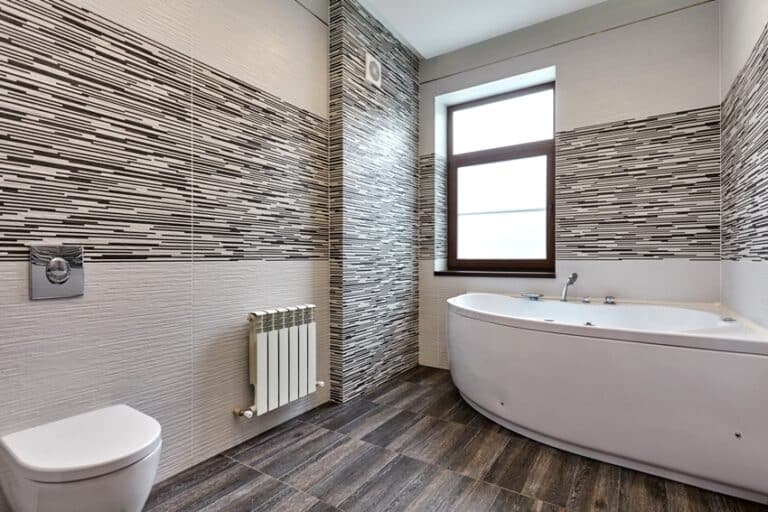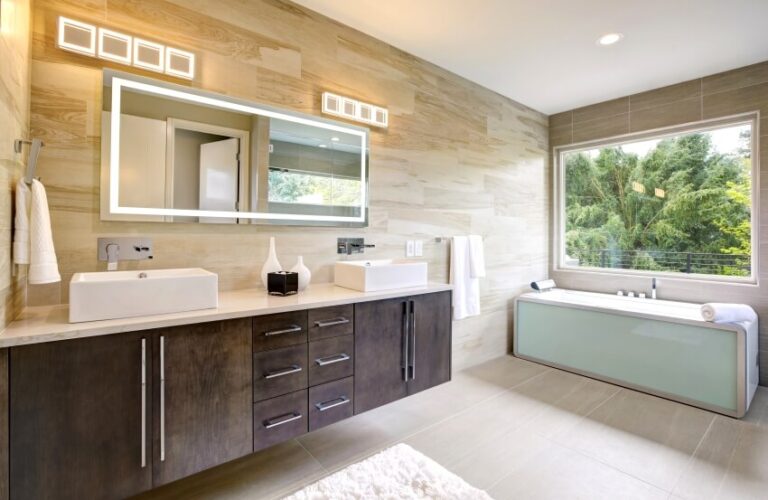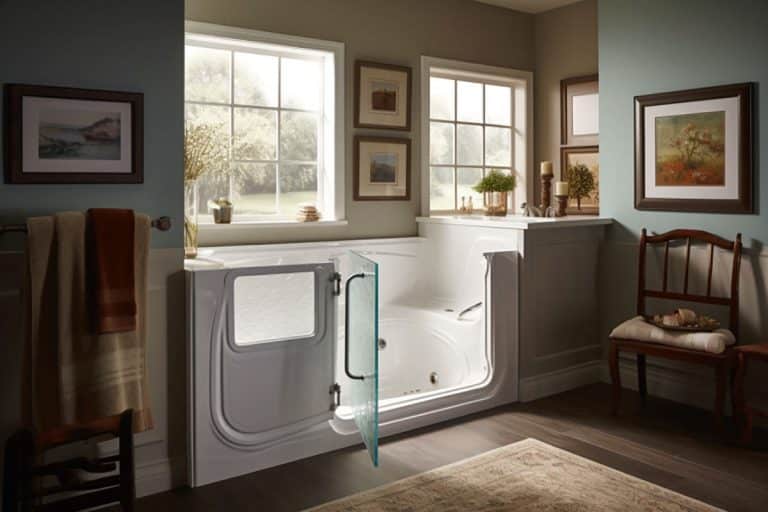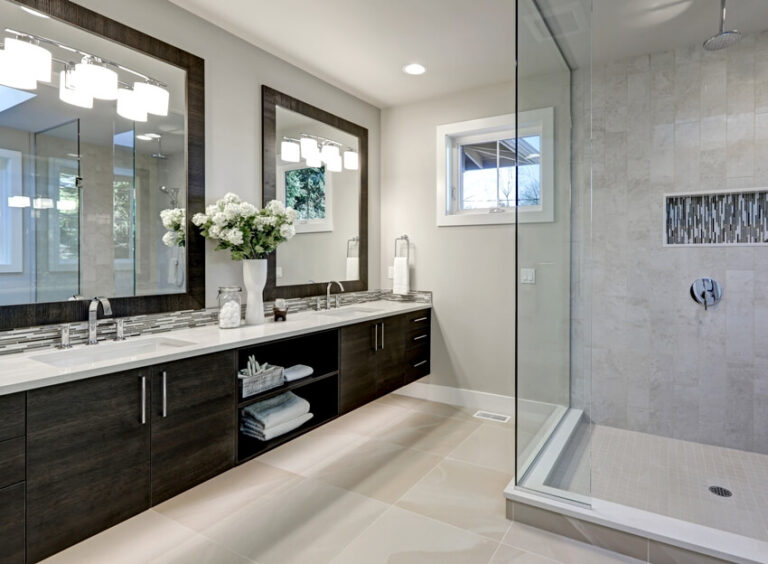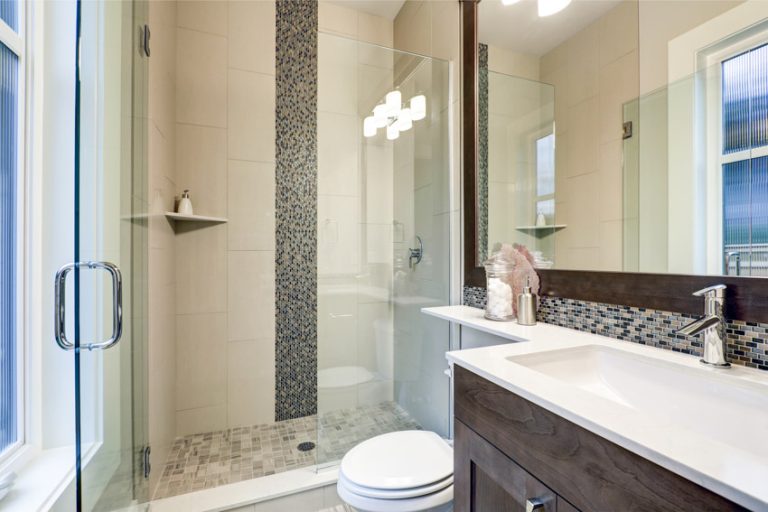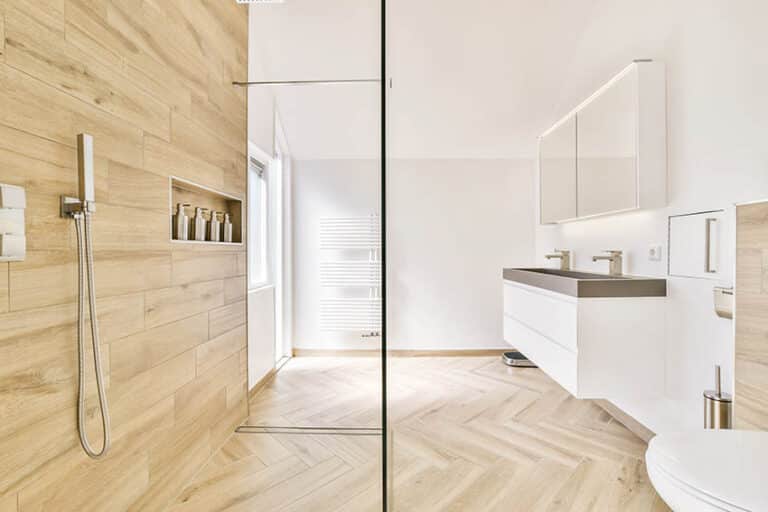Soapstone Bathroom Countertops (Pros and Cons)
In this guide to soapstone bathroom countertops you’ll see the pros and cons, cost, differences compared to granite countertops, and if soapstone is good for the bathroom.
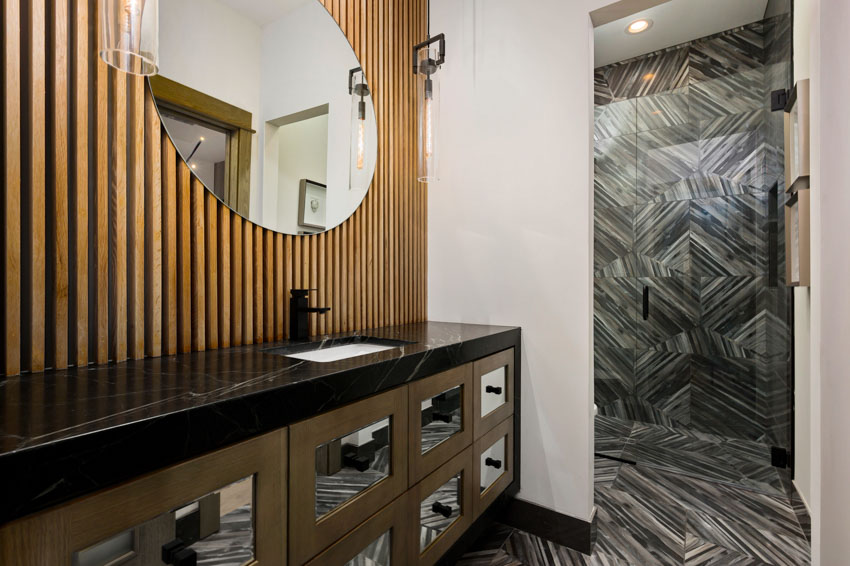
Stone countertops are a popular option for homeowners – including soapstone. While soapstone is one of the softer stone materials for countertops, it can be a beautiful design choice.
Can Soapstone Be Used in a Bathroom?
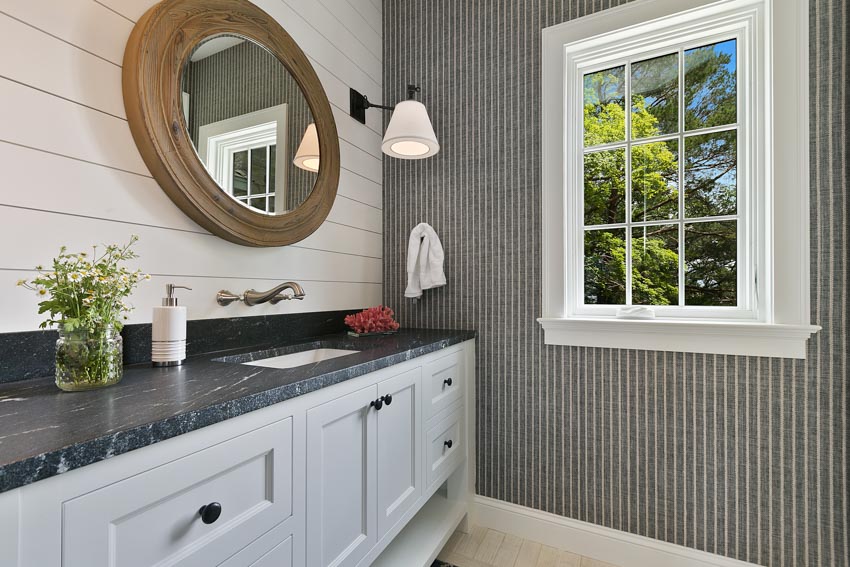

Upload a photo and get instant before-and-after room designs.
No design experience needed — join 2.39 million+ happy users.
👉 Try the AI design tool now
For example, some people turn to soapstone backsplash above their vanity, or use it for their shower walls. In other cases, the use of soapstone floor tiles can be a good idea to consider for bathrooms.
However, using soapstone for countertops is becoming more popular due to its many advantages such as its high density properties. Soapstone is primarily made of mineral talc which is effective in preventing moisture and chemicals from entering the surface.
Soapstone Bathroom Countertops Pros and Cons
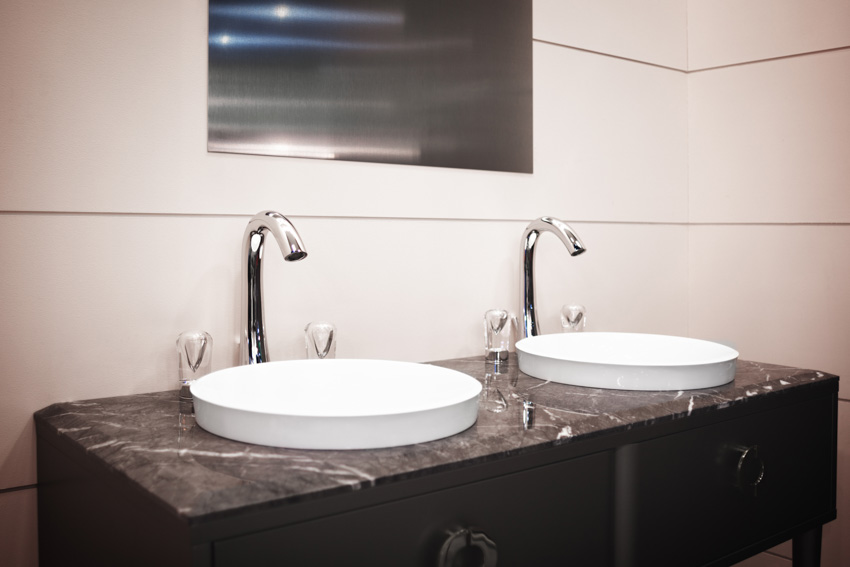
Soapstone Pros
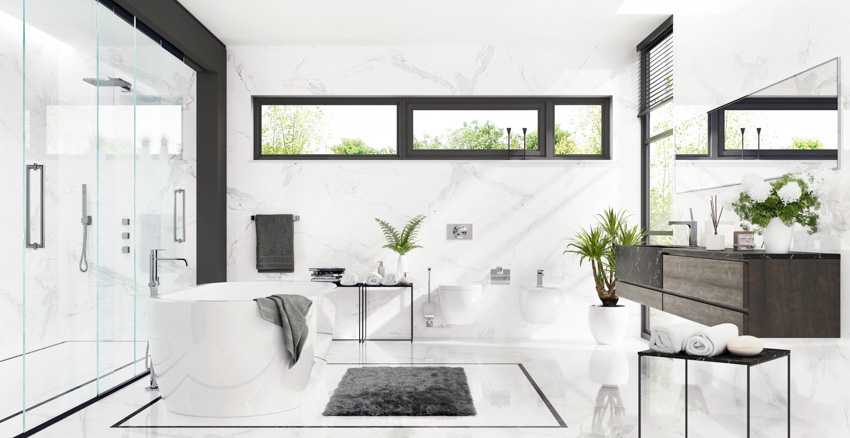
Durability: Soapstone is a durable countertop choice as well. They aren’t prone to cracking from stress. As a non-porous material, you won’t have to worry about resealing your soapstone countertops down the line either.
Stain & Chemical Resistant: Since it’s such a non-porous material, its resistance to staining makes it ideal for bathroom areas.
Easy to Maintain: Soapstone is fairly easy to take care of, clean, and it’s likely to help add value to your home, offering a return on investment. They’re heat-resistant too, so your hot curling iron isn’t going to singe it in the morning.
Environmentally Friendly: Soapstone material is made from natural steatite stone (mineral talc) that is naturally occurring. It can be recycled and contains no synthetic chemicals, unlike some other types of countertops.
Soapstone Cons
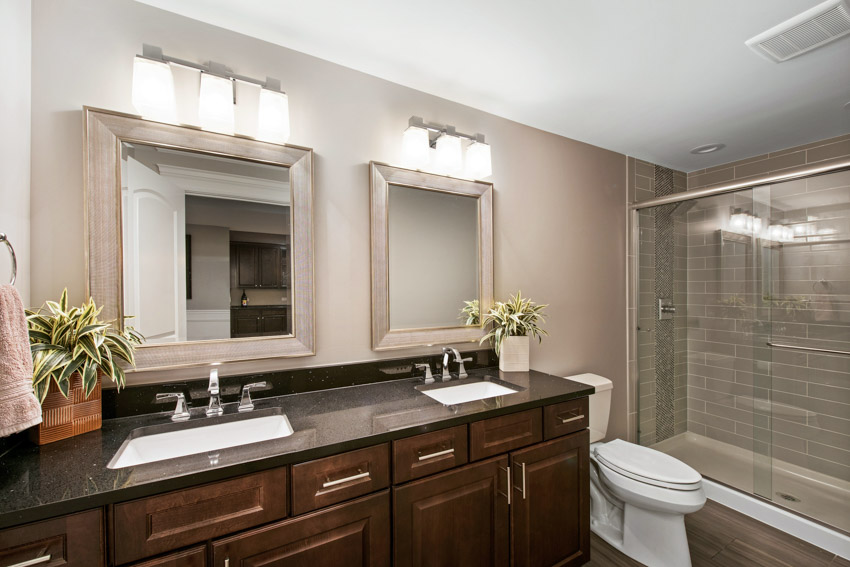
Cost: Soapstone countertops are expensive and professional installation can raise that amount even higher.
Color Choices: There are limited amounts of colors of natural soapstone available.
Cost Of Soapstone Bathroom Countertops
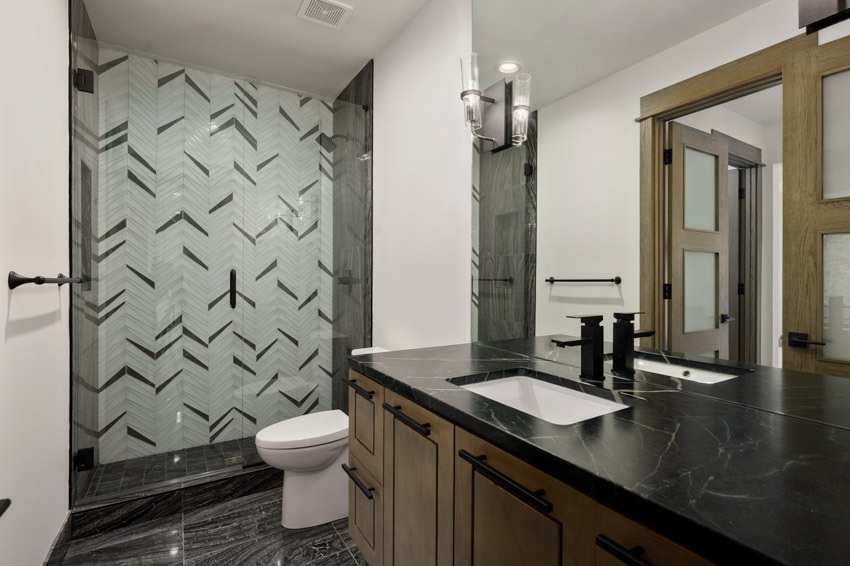
Focusing on the cost of the soapstone material alone, you can expect to spend between $70 and $120 per square foot. This puts most soapstone bathroom countertops in a range between $2,100 and $3,600.
This price doesn’t include the cost of installation either. Since a professional installation is usually necessary for stone countertops, you’ll want to budget for the hourly rate your installation team charges. Most can offer an estimate before they get started.
Are Soapstone Countertops More Expensive Than Granite?
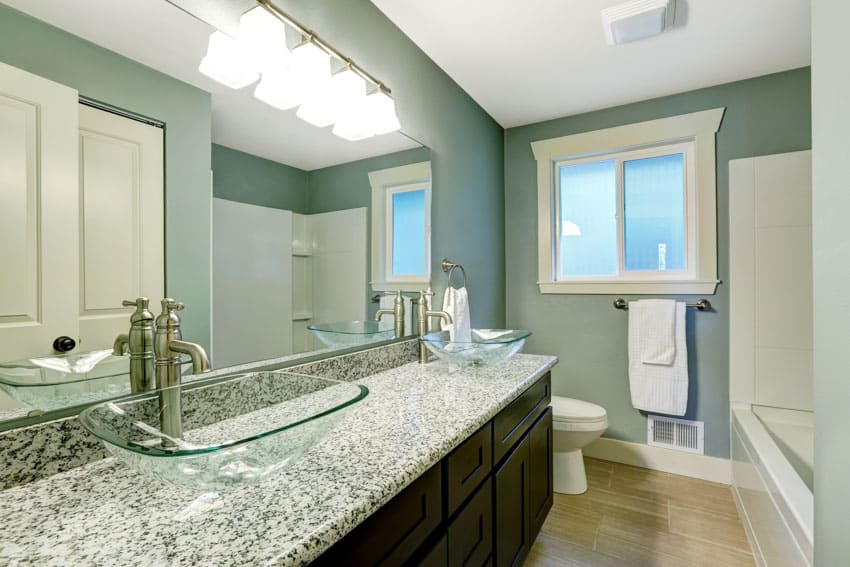
First, let’s take a look at the cost of granite bathroom countertops. Since we looked at the cost of soapstone countertops before installation costs, we’ll do the same for granite to create a direct comparison. In this case, you can expect to pay an average of $40 to $60 for granite.
When you compare that to the $70 to $120 that soapstone typically runs per square foot, it’s easy to see the price comparison. Between these two, granite is going to save you money on materials compared to soapstone.
Should Soapstone Be Sealed?
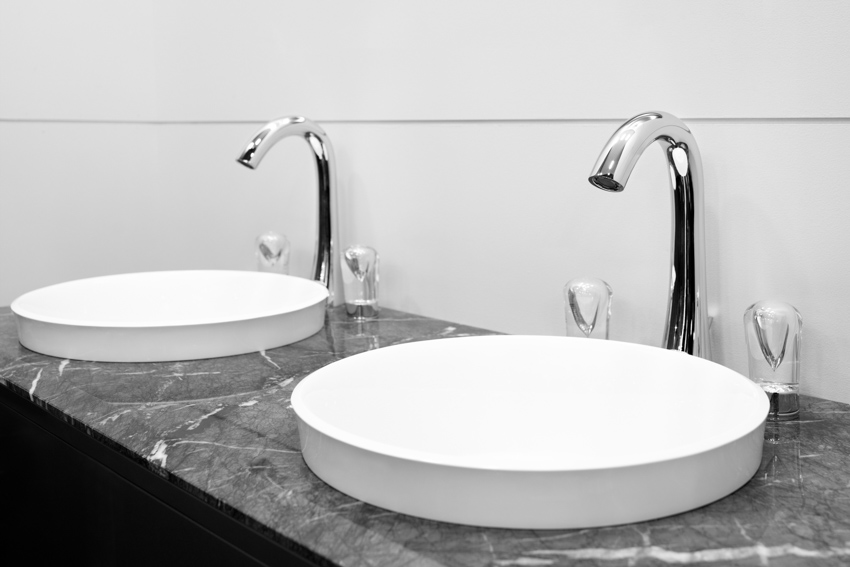
This is because sealing a material stops liquid from seeping into the pores of the material. As such, sealing is only necessary if you’re working with a countertop made of a porous material that’s apt to absorb spills and messes.
The good news is that soapstone is already non-porous. This means that you don’t even have to worry about sealing it because it isn’t prone to absorbing liquids spilled or splashed on it. In fact, trying to seal a soapstone countertop probably won’t work because it won’t absorb the sealant properly.
Can Soapstone Get Wet?
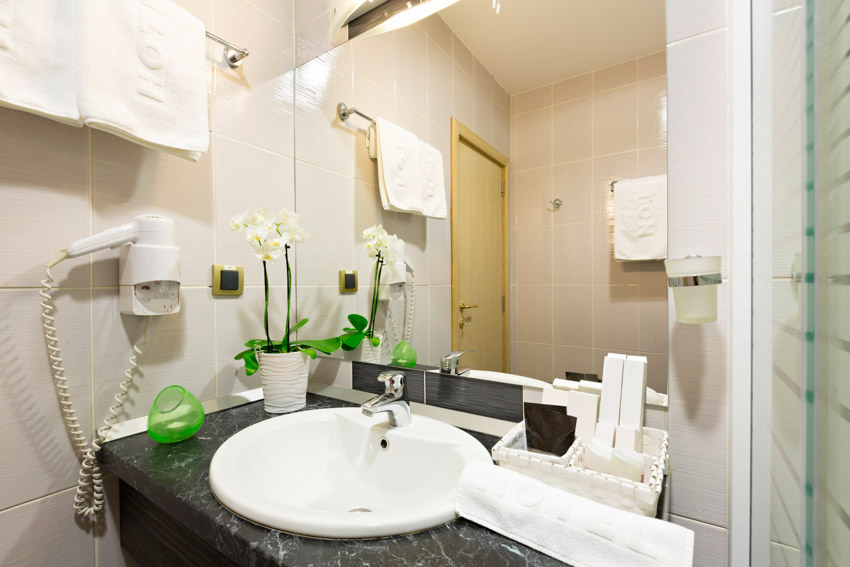
On top of that, you need to make sure that your countertop can put up with the humidity in a bathroom. That’s why you don’t see many wooden bathroom countertops – they simply aren’t as well-suited to the humid environment that activities like showers generate.
The good news is that since soapstone is porous, it isn’t going to absorb a lot of water quickly. This means that it’s generally going to be able to stand up to moisture better than an unsealed, porous countertop. This, plus soapstone’s heat resistance, make it well-suited to stand up to most of the challenges it’ll come across in a bathroom.
Is Soapstone Good For Bathroom Countertops?
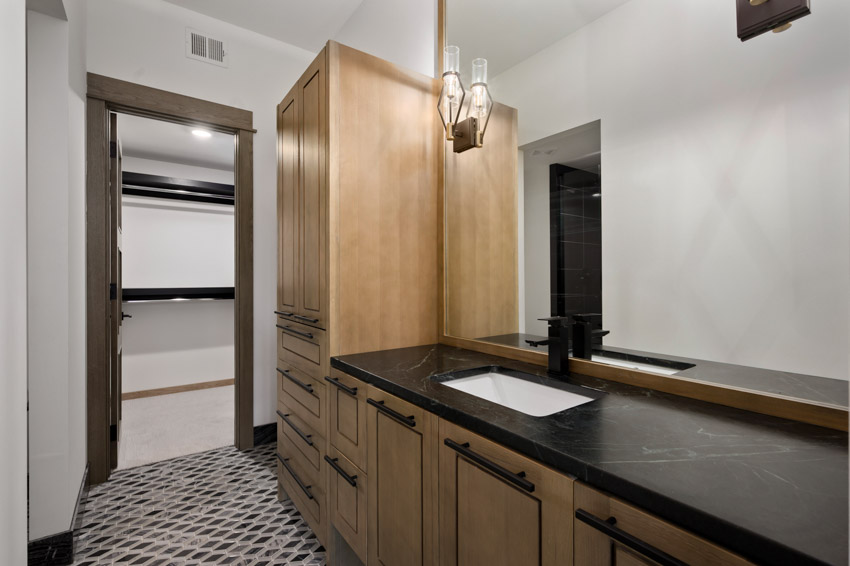
For one, the fact that soapstone is non-porous makes it suitable for a humid environment and exposure to splashes of water. In addition, it’s resistant to damage from heat as well, meaning that you won’t have to worry if it comes into contact with a hot styling tool, for example.
Another handy feature of soapstone is that it’s easy to clean and disinfect. This is particularly handy in an environment that can easily get messy like a bathroom.
Finally, soapstone obviously offers a lot of aesthetic appeal as well. You have a few options when it comes to exactly how your soapstone countertops look too. This way, you can make sure they match your decor scheme as well as functionally keep up with what you need them to.
See more related content in our article about marble bathroom countertops on this page.

